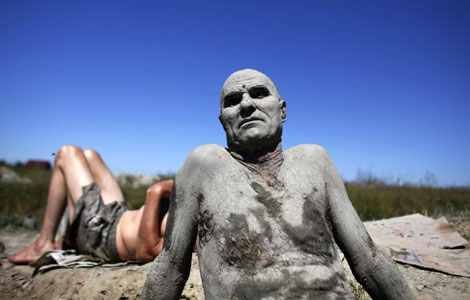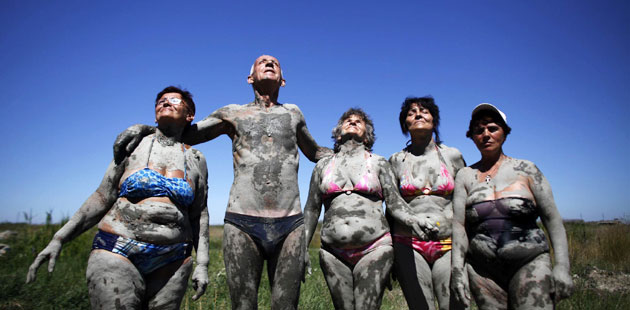Top court to toughen sea pollution penalties
Updated: 2011-08-24 07:09
By Wang Qian and Zhao Yinan (China Daily)
|
|||||||||||
Regulations on marine accidents must be improved, judge says
BEIJING - The country's top court plans to improve rules and regulations to better handle rising disputes over marine pollution, a senior judge has said.
The remarks were made while ConocoPhillips China, the operator of two leaking oil platforms in northern China's Bohai Bay, faces compensation demands for the oil spills.
Existing laws and regulations on pollution cannot keep pace with the rapidly developing marine economy, experts said. The maximum fine for marine pollution is just 200,000 yuan ($31,000).
Liu Guixiang, president of the No 4 Civil Court under the Supreme People's Court, said that China's liability fund for marine pollution is currently only eligible for tanker spills.
Liu said there has been a noticeable increase in recent years in the number of applications requiring the establishment of other such liability funds, but there is still a lack of institutional support to set them up.
"However we'll look into the issue and improve the compensation liability system based on past experience to reinforce the judicial protection of the marine environment," he said.
Low penalties and lack of comprehensive supervision over the marine environment in China give companies like ConocoPhillips an excuse to delay environmental protection, said an official, who requested anonymity, from the North China Sea Branch of the State Oceanic Administration (SOA).
ConocoPhillips China has not completed the cleanup following the first spill detected on June 4, and more spills have been subsequently detected.
Fresh oil seepage can still be seen near the Penglai 19-3 oilfield and ConocoPhillips China admitted on Sunday that nine additional leaks near Platform C have appeared, with about two liters of "materials" seeping out every day.
The leak polluted about 4,240 square kilometers at its peak, equal to the area of Qing-hai Lake, the largest lake in China, according to the SOA.
Dried oil drops and oil belts have been detected in the three provinces and one municipality surrounding Bohai Bay - Liaoning, Hebei, Shandong and Tianjin.
The government of Laoting county, Hebei province, estimated that economic losses just concerning scallop breeders has reached 200 million yuan, and local fishermen planned to file a lawsuit against ConocoPhillips China, said Yang Jizhen, chairman of the Laoting fishery association.
The expanding pollution has drawn attention from top government agencies with an investigation team established by the SOA and several ministries.
The team went to the Penglai 19-3 oilfield on Monday to look into the cause of the leak and potential environment impact, according to Xinhua News Agency.
A comprehensive investigation should determine economic losses in the local fisheries and the amount of compensation due to the local fishermen, Liu Cigui, director of the SOA, said on Monday.
Investigators also stressed that compensation should include damage to China's marine environment.
ConocoPhillips said on Monday that it is working with marine experts to assess the impact on the environment.
- Live Report: Gadhafi says withdrawal tactical move
- Tougher penalties for sea pollution
- Moody's cuts Japan rating to Aa3
- 5 detained over toxic waste dumping
- 26 trapped after coal mine floods
- Japan Prime Minister on way out
- Live Report: Gadhafi on the run as rebels fight
- More trains slow to improve safety
Hot Topics
Anti-Gay, Giant Panda, Subway, High Speed Train, Coal Mine, High Temperature, Rainstorm, Sino-US, Oil Spill, Zhu Min
Editor's Picks

|

|

|

|

|

|






